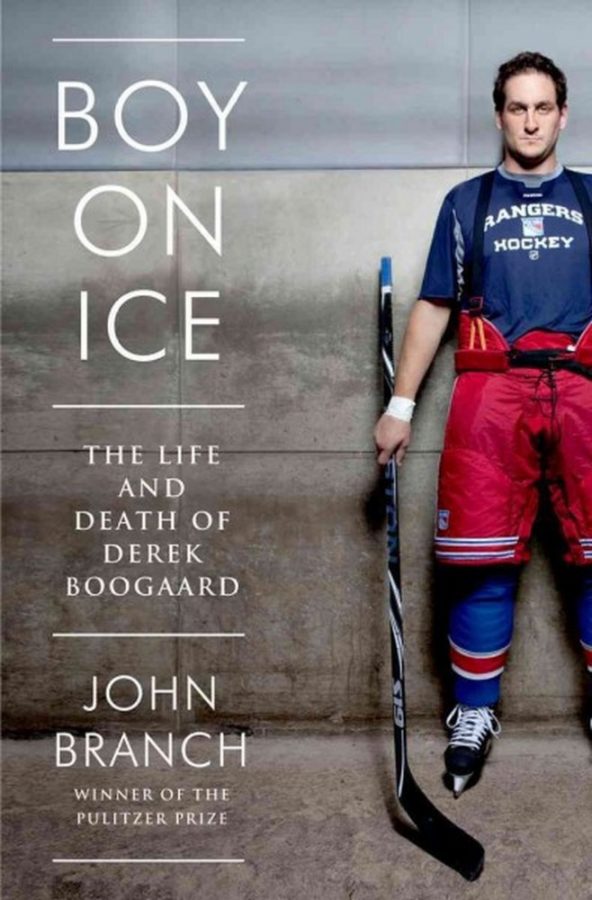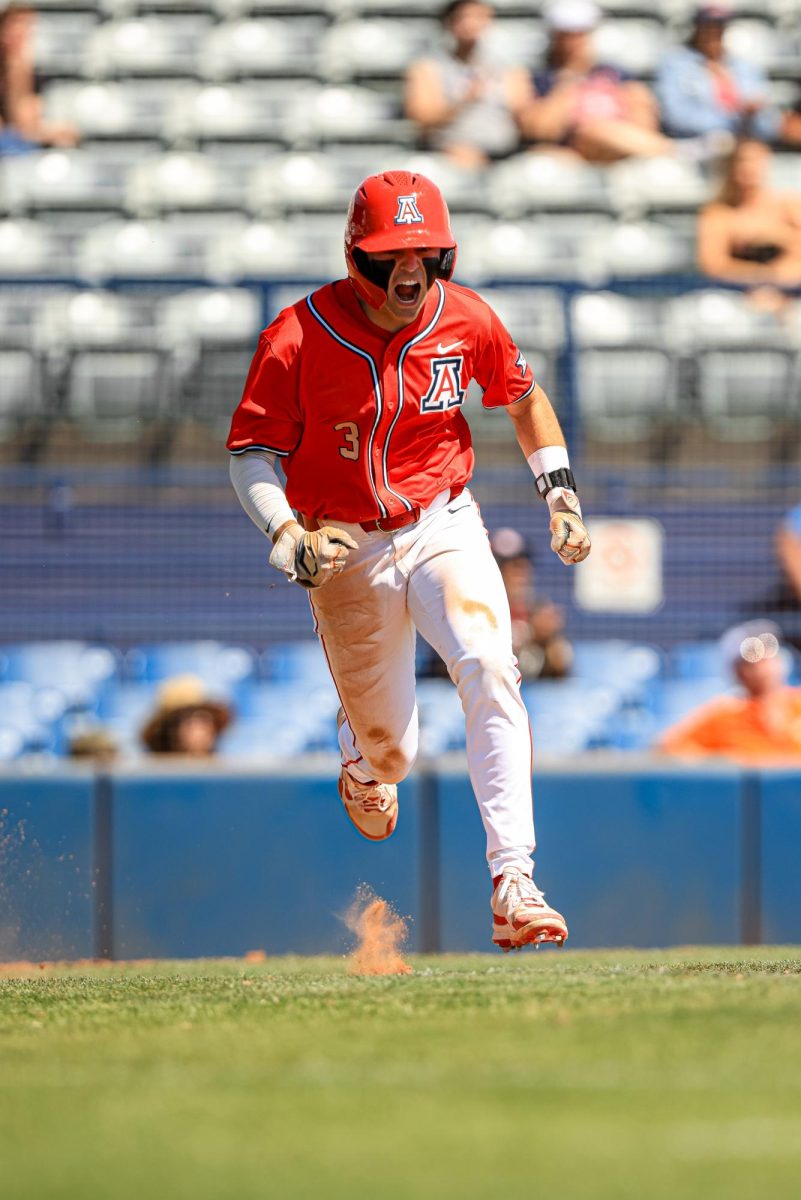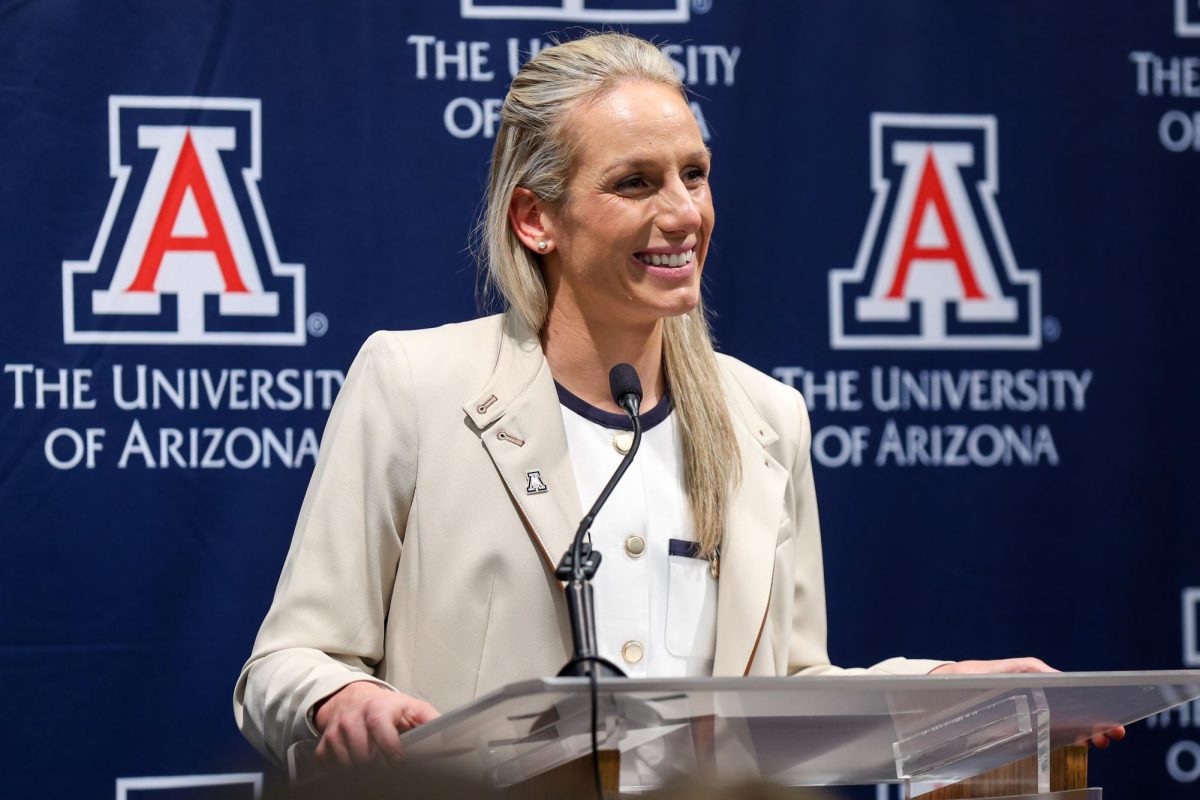The Daily Wildcat spoke with New York Times sports reporter John Branch, who will serve as a panelist at this weekend’s Tucson Festival of Books.
Branch was awarded the 2013 Pulitzer Prize for Feature Writing for his piece titled “Snow Fall: The Avalanche at Tunnel Creek.” Branch released his first book “Boy on Ice: The Life and Death of Derek Boogaard” in 2014.The Daily Wildcat spoke with New York Times sports reporter John Branch, who will serve as a panelist at this weekend’s Tucson Festival of Books.
Branch was awarded the 2013 Pulitzer Prize for Feature Writing for his piece titled “Snow Fall: The Avalanche at Tunnel Creek.” Branch released his first book “Boy on Ice: The Life and Death of Derek Boogaard” in 2014.
The Daily Wildcat: What made you want to come out to Tucson and be a panelist for the Tucson Festival of Books?
John Branch: It sounds like a great festival. It’s a chance for me to see, meet and hear from other authors and I’m always glad to talk about my book if people are interested.
Where did the idea for your book come from and how did you go about publishing it?
The idea came from a three-part newspaper series that I wrote about Derek Boogaard, the hockey enforcer, who overdosed at the age of 28 in the middle of his career. When the series of stories ran a couple of years ago, I had a lot of material left over that I thought would be a shame to lose and never see the light of day. I had interest from publishers to explore the topic a bit further and that combination was just too much to pass up, so I ventured off into book writing for the first time.
What was the transition like going from reporter to author?
It’s hard. I walk into bookstores and I look at all the books that people have written and I say to myself, “Who are you, people?” because I don’t know who these people are that can write books and be so prolific at it. It’s hard, it’s daunting, it’s different than what I do for the New York Times, in which I typically will learn about a subject for a few hours or a few days and then write about it and move onto something else. To write a book is to really live with the subject for a long time. My nine-to-five job as a reporter is a lot simpler in many ways than trying to become a book author. It’s made me more compassionate toward authors and the work that they do.
Out of all the sports you have covered over the years, what is your favorite event you have attended?
The older I get, the more I appreciate sports that are out of the mainstream. I really appreciate reporting on events that nobody else is reporting on. I like opening up audiences that they wouldn’t otherwise know about if I hadn’t been there. I was just talking this morning about the Dawn Wall Climb at Yosemite last year and it was a story that I wrote back in January and hours after us writing about it and putting it on the front page of the New York Times, it became an international sensation and suddenly there were millions of people paying attention to this climb. I like being a part of something that nobody else is part of, but also pulling back the curtain for our readers to see.
What would you tell college students trying to pursue a journalism career similar to you?
I’m a big optimist about the future of journalism, which puts me in the minority, I think. There will always be a place for good, non-fiction, investigative, detailed storytelling. What scares people is that we don’t know exactly what that form will look like. It might not be print newspapers, but there will always be a place for people to go to read these kinds of things. It’s hugely important in our democracy and hugely important for our culture to support non-fiction storytelling. It’s how we capture real life. My advice to young people who are thinking about this career and maybe have parents that say “Don’t do that,” is if you are passionate about it and you believe you have the talent to do it, definitely get into it and you will find your way. The scary part is there’s no clear path at the moment, but those paths will continue to emerge.









